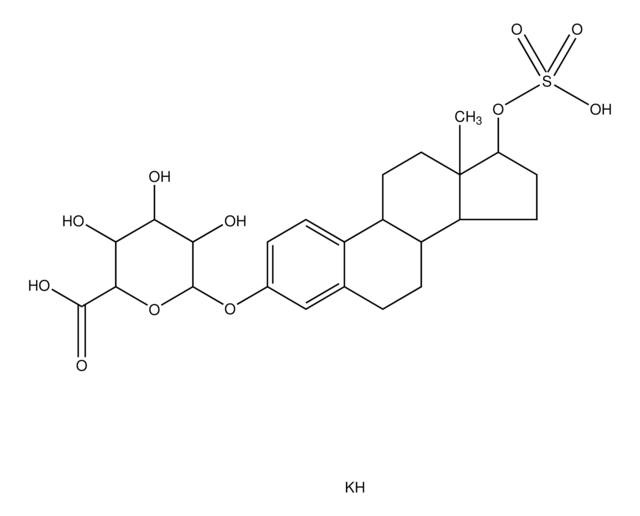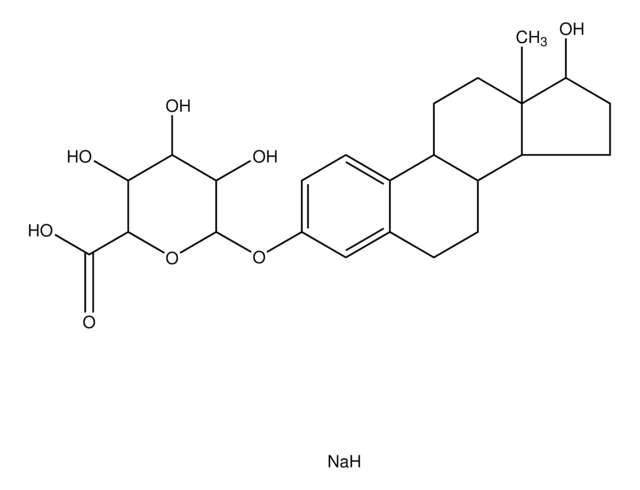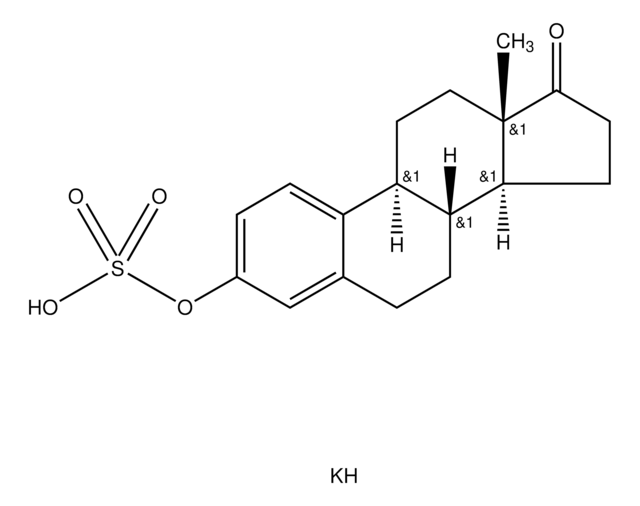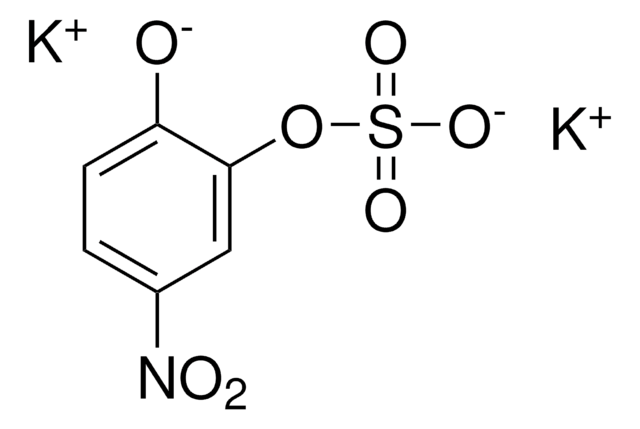E9505
β-Estradiol 3-sulfate sodium salt
≥93%
Synonym(s):
1,3,5(10)-Estratriene-3,17β-diol 3-sulfate, 3,17β-Dihydroxy-1,3,5(10)-estratriene 3-sulfate
About This Item
Recommended Products
sterility
non-sterile
Quality Level
Assay
≥93%
form
powder
contains
~70% N-methyl-D-glucamine as stabilizer
solubility
methanol: 9.80-10.20 mg/mL, clear, colorless to faintly yellow
shipped in
ambient
storage temp.
room temp
SMILES string
[Na].[H][C@]12CC[C@]3(C)[C@@H](O)CC[C@@]3([H])[C@]1([H])CCc4cc(OS(O)(=O)=O)ccc24
InChI
1S/C18H24O5S.Na.H/c1-18-9-8-14-13-5-3-12(23-24(20,21)22)10-11(13)2-4-15(14)16(18)6-7-17(18)19;;/h3,5,10,14-17,19H,2,4,6-9H2,1H3,(H,20,21,22);;/t14-,15-,16+,17+,18+;;/m1../s1
InChI key
PYPVMTJYMKHIST-LBARCDFESA-N
General description
Application
Biochem/physiol Actions
Packaging
Signal Word
Warning
Hazard Statements
Precautionary Statements
Hazard Classifications
Acute Tox. 4 Inhalation - Acute Tox. 4 Oral - Carc. 2
Storage Class Code
11 - Combustible Solids
WGK
WGK 3
Flash Point(F)
Not applicable
Flash Point(C)
Not applicable
Personal Protective Equipment
Certificates of Analysis (COA)
Search for Certificates of Analysis (COA) by entering the products Lot/Batch Number. Lot and Batch Numbers can be found on a product’s label following the words ‘Lot’ or ‘Batch’.
Already Own This Product?
Find documentation for the products that you have recently purchased in the Document Library.
Customers Also Viewed
Our team of scientists has experience in all areas of research including Life Science, Material Science, Chemical Synthesis, Chromatography, Analytical and many others.
Contact Technical Service














